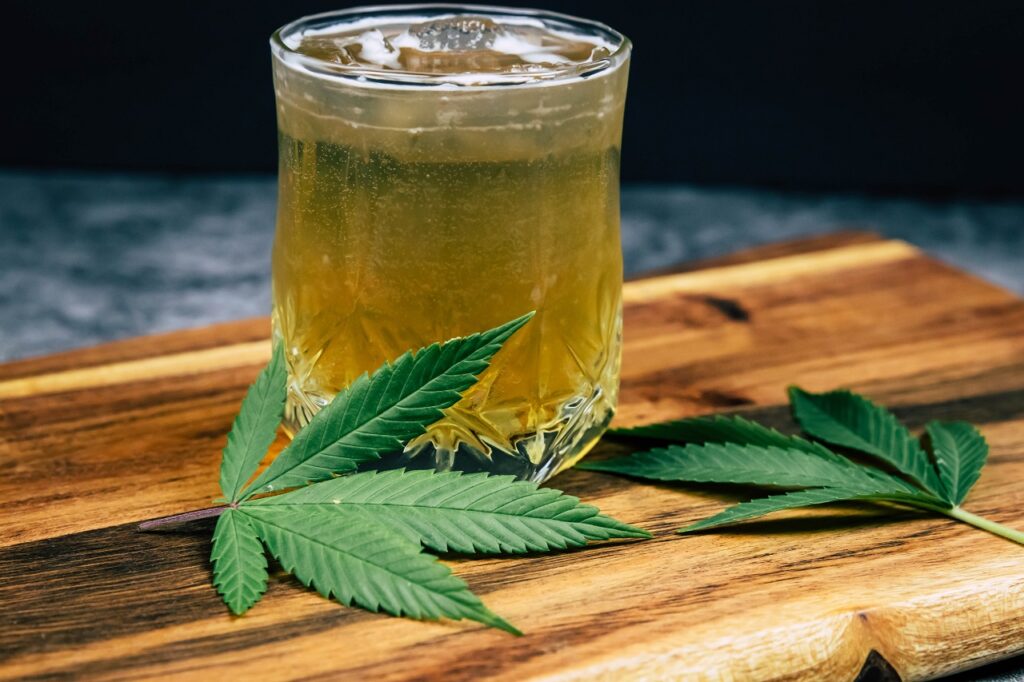CBD (cannabidiol) and alcohol are two substances that have gained significant attention in recent years. CBD is a non-intoxicating compound derived from cannabis, known for its potential therapeutic effects. On the other hand, alcohol is a widely consumed psychoactive substance that can have various effects on the body. Mixing CBD and alcohol has become a topic of interest, and people often wonder what happens when these two substances are combined. In this comprehensive guide, we will explore the potential interactions, effects, and risks associated with mixing CBD and alcohol.
Understanding CBD and Alcohol:
- Before delving into the potential effects of mixing CBD and alcohol, it’s essential to have a basic understanding of each substance individually.
- CBD: Cannabidiol is one of the many cannabinoids found in the cannabis plant. Unlike its counterpart THC (tetrahydrocannabinol), CBD does not produce intoxicating effects or a “high.” CBD is believed to interact with the body’s endocannabinoid system, which regulates various physiological functions such as pain perception, mood, sleep, and immune response. Many people use CBD for its potential therapeutic benefits, including alleviating anxiety, reducing inflammation, and promoting relaxation.
- Alcohol: Alcohol, specifically ethanol, is a psychoactive substance that is legal and commonly consumed in various forms, such as beer, wine, and spirits. Alcohol affects the central nervous system, causing a range of effects, including relaxation, euphoria, impaired judgment, and decreased inhibitions. However, excessive alcohol consumption can lead to adverse effects, including liver damage, addiction, and impaired cognitive function.
Potential Interactions:
- When CBD and alcohol are consumed separately, they can have distinct effects on the body. However, when combined, the potential interactions between the two substances can be complex. Although scientific research on this topic is limited, several studies and anecdotal reports have shed light on potential interactions:
- Increased blood alcohol levels: One study conducted on humans found that participants who took CBD with alcohol had significantly higher blood alcohol levels than those who consumed alcohol alone. This suggests that CBD may inhibit the metabolism of alcohol, potentially leading to increased intoxication and impairment. However, more research is needed to confirm these findings and understand the underlying mechanisms.
- Reduced alcohol-induced liver damage: Some animal studies suggest that CBD may have protective effects against alcohol-induced liver damage. Alcohol abuse can lead to liver inflammation, oxidative stress, and fatty liver disease. CBD’s potential anti-inflammatory and antioxidant properties may help mitigate these effects, but further research is necessary to establish a definitive link.
Effects of Mixing CBD and Alcohol:
- When CBD and alcohol are mixed, the potential effects can vary from person to person. Factors such as the dosage, individual metabolism, and overall health can influence the outcomes. Here are some possible effects that have been reported anecdotally:
- Heightened sedation and drowsiness: Both CBD and alcohol can cause sedative effects, and combining them may intensify these effects. Some individuals have reported feeling more relaxed, sleepy, or drowsy when consuming CBD and alcohol together.
- Increased impairment: As mentioned earlier, combining CBD and alcohol may lead to increased impairment and intoxication. It is crucial to exercise caution and avoid activities that require alertness and coordination, such as driving, when consuming these substances together.
- Altered mood and cognition: CBD and alcohol can both affect mood and cognition individually, and their combined use may result in unpredictable effects. Some individuals have reported feeling more relaxed and less anxious, while others have experienced increased confusion or cognitive impairment.
- Potential therapeutic benefits: Despite the limited research, some individuals believe that combining CBD and alcohol may enhance the potential therapeutic benefits of both substances. For example, CBD’s potential anti-anxiety properties may complement alcohol’s relaxation effects. However, it is important to note that scientific evidence supporting these claims is currently lacking.
Risks and Precautions:
While mixing CBD and alcohol may not necessarily pose significant risks for most people, certain precautions should be taken:
- Personal tolerance and sensitivity: Individuals react differently to substances, and what may be well-tolerated by one person may have adverse effects on another. It is important to be aware of your personal tolerance to both CBD and alcohol and monitor how you feel when combining them.
- Medication interactions: CBD can interact with certain medications, including those metabolized by the liver enzymes CYP450. Alcohol also affects the same enzymes, potentially leading to altered drug metabolism. If you are taking any medications, it is crucial to consult with a healthcare professional before combining CBD and alcohol.
- Moderation is key: Excessive alcohol consumption can have detrimental effects on health. It is important to consume alcohol responsibly and in moderation. Combining CBD with alcohol does not negate the potential risks associated with excessive alcohol intake.
- Individual health considerations: Certain individuals, such as pregnant or breastfeeding women, those with liver disease, or individuals with a history of substance abuse, should avoid mixing CBD and alcohol altogether. It is always advisable to consult with a healthcare professional if you have any concerns or specific health conditions.
Conclusion:
Mixing CBD and alcohol can result in varied effects and interactions, but the scientific understanding of this combination is still in its early stages. While some studies suggest potential interactions, more research is needed to establish a clear understanding of the effects, risks, and therapeutic implications. If you choose to consume CBD and alcohol together, it is essential to do so responsibly, be aware of your personal tolerance, and consider any potential medication interactions. As with any substance, moderation and individual health considerations should always be taken into account.

